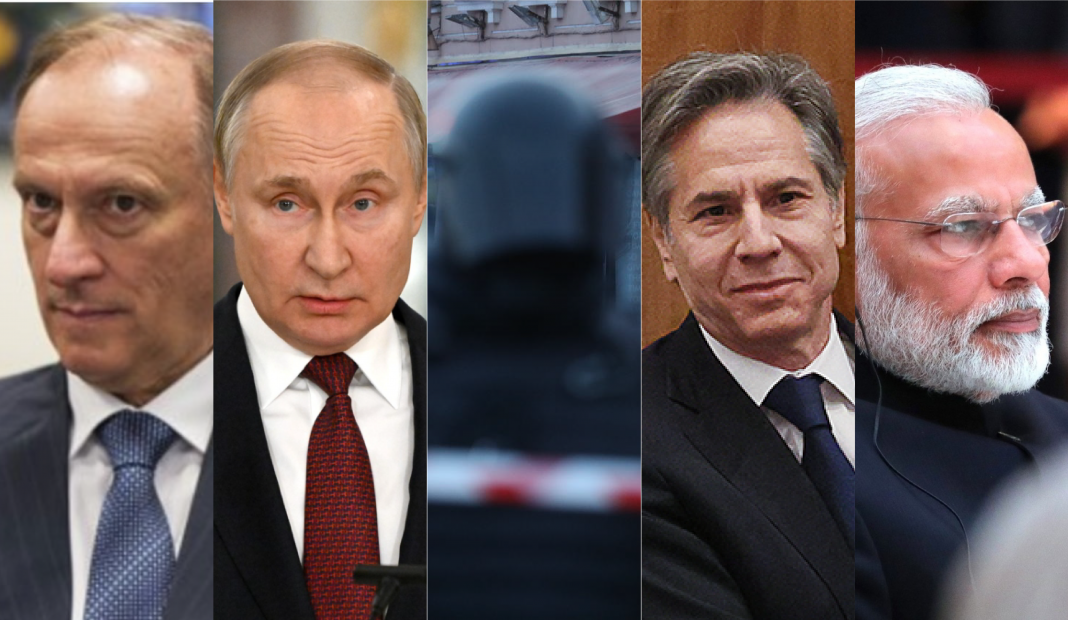This report describes the key events that had an important impact on the political, economic and social processes inside Russia.
Based on the results of the past week, the following trends can be summarised:
- Russia is updating its foreign policy concept, in which it once again tries to legalise the formation of a new world order and the strengthening of relations with the main allies in the region (China, the states of Central Asia and the Middle East). At the same time, an attempt is being made to change the emphasis and act as a peacemaker, not an aggressor. Hence the ambiguous nods to the United States and “gestures of goodwill” regarding the readiness to warn Washington about the launch of certain types of missiles and even attempts to establish official communication at the diplomatic level. Soon, direct communication between Biden and Putin can be expected, for which the parties are currently trying to resolve several legal and political nuances.
- In building new and strengthening existing political alliances, it is vital for Russia to get the support of India, which continues to maintain a balance between Moscow and Washington. Therefore, India remains a crucial partner for Russia. However, Prime Minister Narendra Modi’s policy is to cooperate harmoniously with the US and Russia without leaning towards this or that association. In essence, Modi is trying to restore India’s role and influence during the days of Jawaharlal Nehru and his attempts to lead the Non-Aligned Movement. Soon, we should expect the results of Nikolai Patrushev’s visit to New Delhi, as a result of which it is unlikely that Modi could change his position.
- An attempt to form two ideological camps in Russian society is becoming increasingly noticeable, one of which stands for the continuation of the war to a victorious end, and the second supports peaceful initiatives in every possible way. With the help of such technology, Putin is trying to create the image of a peacemaker, both in the Ukrainian issue and on a global scale. Shortly, the figure of Yevgeny Prigozhin is expected to strengthen further as Putin’s key opponent in the upcoming presidential elections. It is likely that by autumn, Prigozhin will demonstrate his political ambitions and take part in the election of the mayor of Moscow.
During 27th of March – 2nd of April the following topics were the most relevant for Russia:
1. New concept of Russian foreign policy
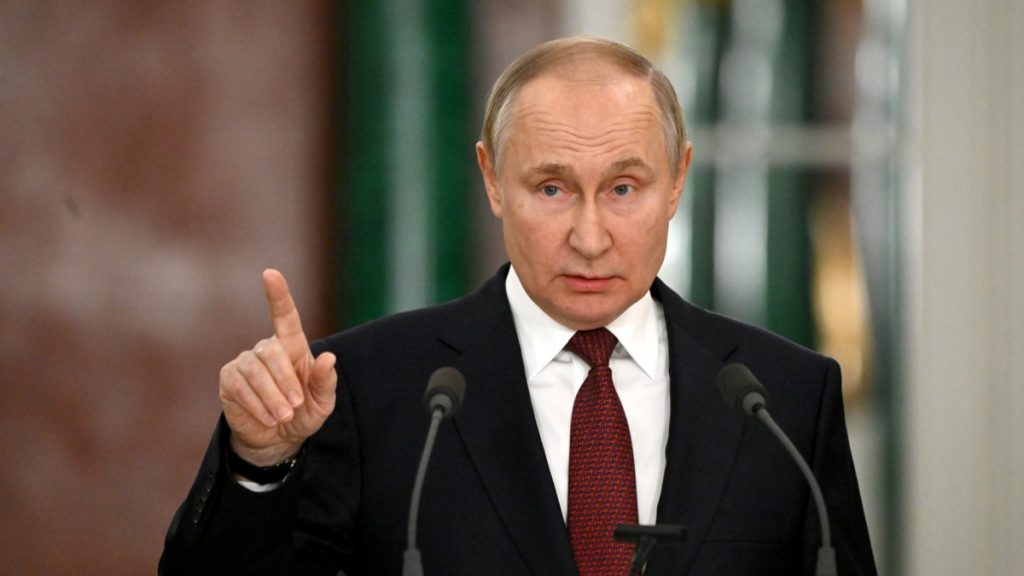
On Friday, March 31, Vladimir Putin held a meeting of the Security Council of the Russian Federation, during which he announced the signing of a new concept of Russia’s foreign policy. The corresponding document, consisting of 76 points, was published on the website of the Presidential Administration of the Russian Federation.
Key elements of the foreign policy concept of the Russian Federation:
- Russia does not consider itself an enemy of the West nor isolate itself from it and does not have hostile intentions.
- Russia is counting on the West’s realisation of the futility of confrontation and a return to equal interaction.
- Moscow views the US course as the primary source of risks for its security and international peace.
- Priority will be given to removing the vestiges of US dominance worldwide.
- Moscow seeks to ensure security equally for all countries based on reciprocity.
- Russia intends to prioritise monitoring and publicising the real situation with respect for human rights and freedoms in the world, primarily in states that claim their exclusivity in matters of respect for human rights and the definition of international norms in this area.
- A comprehensive deepening of ties and coordination with China and India is significant.
- The main goal in the neighbouring countries’ area is to turn the region into a zone of peace, good neighbourliness and prosperity.
Key statements:
Sergei Lavrov: “The logic of the new concept of Russia’s foreign policy reflects the revolutionary advances in international affairs.”
Vladimir Putin: “Dramatic changes in international life have required us to revise key strategic planning documents seriously.”
Outcomes and outlook:
It is worth noting that the new Russian foreign policy concept is rather an updated document that was last edited in 2016. In total, after the collapse of the USSR, five concepts of the foreign policy of the Russian Federation were adopted: in 1993, 2000, 2008, 2013 and 2016.
At the same time, the concept has changed most noticeably over the past seven years. So, first, we are talking about relations with the West and the exact positioning of Russia in the geopolitical arena.
The updated concept has lost several indicative points:
• (Paragraph No. 56) The Russian Federation is interested in developing various political, economic, cultural and spiritual ties with Ukraine based on mutual respect, building partnerships while respecting its national interests.
• (Paragraph No. 59) The Russian Federation is interested in normalising relations with Georgia in areas where the Georgian side is ready for this, considering the political realities that have developed in the Transcaucasus.”
• (Paragraph #65) The visa regime remains one of the main barriers to developing contacts between the Russian Federation and the EU. Therefore, the phased abolition of the visa regime on a reciprocal basis will be a powerful impetus for strengthening cooperation between the Russian Federation and the EU in the economic, humanitarian, cultural, educational and other fields.
• (Paragraph #27) The Russian Federation attaches great importance to implementing the Treaty between the Russian Federation and the United States on measures for further reducing and limiting strategic offensive arms of April 8, 2010.
At the same time, the most significant change in the new version of the foreign policy concept can be considered the official mention of the latest status of the Russian Armed Forces and the system for their application: “The use of the Russian Armed Forces can be directed, in particular, to solving the tasks of repelling and preventing an armed attack on Russia and (or) its allies, to resolve crises, to maintain (restore) peace following the decision of the UN Security Council, other collective security structures with the participation of Russia in their area of responsibility, to ensure the protection of its citizens abroad, to combat international terrorism and piracy.
It is noteworthy that paragraph 24 of the concept states that to maintain and strengthen international peace and security, the Russian Federation intends to give priority to the use of peaceful means, primarily diplomacy, negotiations, consultations, mediation and good offices, to resolve international disputes and conflicts, their settlement based on mutual respect, compromises and a balance of legitimate interests.
Apparently, the very updating of the foreign policy concept was carried out only to update some of the information indicated in the previous version of the document. The new concept does not bring any fundamental changes, taking into account all the statements and positions of Putin he voiced after the start of the war against Ukraine.
At the same time, despite the formality of such actions, Russia is still trying to convey to the world community the main message, which reflects Moscow’s intention to play against the West using its methods: high-profile accusations without official evidence, the involvement of international organisations for pressure, the use of “soft forces”, the formation of international alliances and more. Such plans are demonstrated in the following paragraph: Russia intends to prioritise monitoring and publicising the real situation with respect for human rights and freedoms in the world, primarily in states that claim their exclusivity in matters of observing human rights and defining international norms in this area.
It is worth noting that China is also actively supporting Russia in this direction, whose representatives have repeatedly called on all parties for peace, the negotiation process, more active use of UN instruments, and the demonopolisation of international structures by the West. A situation is emerging in which the “collective East” is trying to use its methods against the “collective West”.
Suppose such a concept is successfully promoted, which is possible only if there is a more global consensus (China, Russia, Central Asia, Africa, and the Middle East). In that case, the distortion of the concepts of democracy and multipolarity will increase significantly, entirely consistent with the main trends of the post-truth era.
2. Interview with Secretary of the Security Council of the Russian Federation Nikolai Patrushev
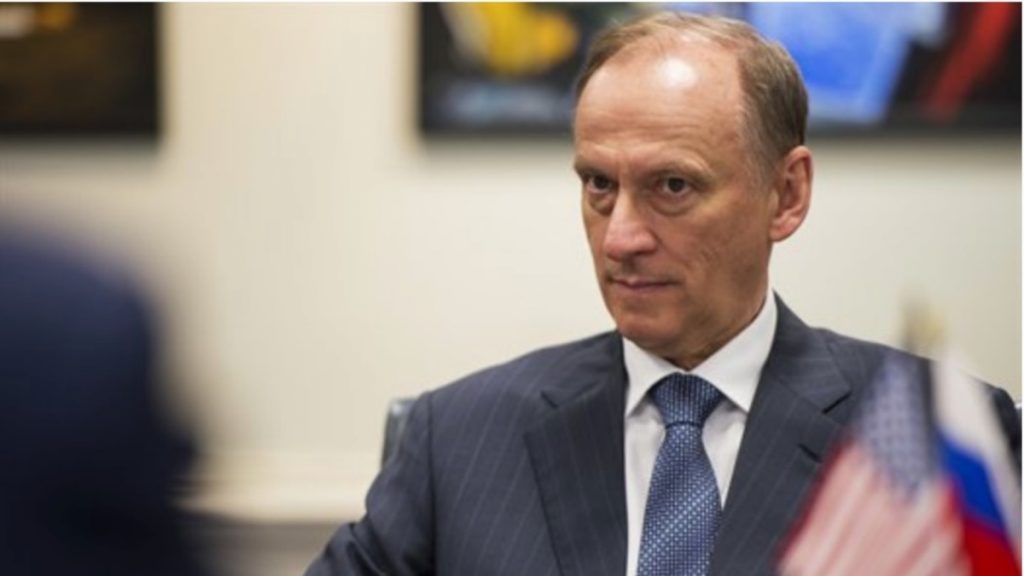
On Monday, March 27, the Rossiyskaya Gazeta newspaper published an interview with Nikolai Patrushev, Secretary of the Security Council of the Russian Federation. The main topic of the interview was criticism of the United States, which, according to Patrushev, has lost its dominant role on the world stage and is trying with all its might to keep from disintegrating. Patrushev also made several rather loud statements about the role of Russia in global processes and threatened to destroy all enemies with unknown weapons.
Key theses:
- “Hypocritically talking about freedom of choice, the US, which has appointed itself the main dictator of the world, in fact, will simply scoff at countries where they violate sovereignty and democracy.”
- “The main task of the political regime in the modern United States is to mislead its own population in the context of the systemic crisis in which they find themselves.”
- “Those who have carefully studied the US legal and socio-political system are devoid of illusions about freedom of speech and will in this country.”
- “Washington has long been a champion in violating the sovereignty of states, in the number of unleashed wars and conflicts, in the brutal and illegal hunting of citizens of other countries.”
- “Forgetting the lessons of history, some in the West are already talking about revenge, which will lead to a military victory over Russia. To this, we can say one thing. Russia is patient and does not intimidate anyone with its military advantage. But it has modern unique weapons capable of destroying any enemy, including the United States, in the event of a threat to its existence.”
- “At the same time, Russia is not going to close its economy from the world. It will remain open and be integrated with the economies of sovereign countries concerned about their prosperity, including through cooperation with us.”
- “The US Indo-Pacific strategy is an attempt to create an Asian NATO. But, unfortunately, the new alliance will be another aggressive bloc directed against China and Russia, and at the same time to pacify the now independent states.”
- “The US is ready to fight Russia to the last Ukrainian and the last European. Even during the Cold War, the Pentagon was ready to turn Europe into a radioactive desert in the slightest danger from the USSR.
- “The paradox lies in the fact that Washington is directly interested in the collapse of the European Union to eliminate its economic competitor, to prevent Europe from flourishing through cooperation with Russia.”
- “America’s problem is that it has played too many geopolitical games, forgetting about its own pressing problems. As a result, while the United States, in its military biological laboratories, is inventing new viruses to destroy the peoples of objectionable countries, the once-clean American cities are drowning in mud and garbage.
- “Our centuries-old culture is based on spirituality, compassion and mercy. Russia is a historical defender of the sovereignty and statehood of those who turned to her for help. We saved the United States at least twice – during the Revolutionary War and the Civil War. But I believe it is not advisable to help the States maintain its integrity this time.
Outcomes and outlook:
Nikolai Patrushev’s interview follows the classic anti-American and anti-Western tradition that is characteristic of the modern Russian Federation. It should be considered in conjunction with Patrushev’s visit to India – it is no coincidence that the interview focuses on US attempts to create an analogue of NATO in the Indo-Pacific region. Patrushev understands that without India and its consent, this pact cannot take place – the experience of creating AUKUS confirmed this. Therefore, in the near future, a struggle will unfold between the United States and Russia for India. Nevertheless, Patrushev understands that the US positions are preferable: the presence of severe contradictions in relations between India and China and the rapprochement between Russia and China will push New Delhi towards an alliance with the United States. The task of the interview is to outline the immediate risks, not directly naming them but hinting at them.
The aggression on the United States regarding “preserving integrity” is an overestimation of the bar, hinting that the situation with Russia’s primary opponent is unstable. In fact, this is a mirror response of the United States, which has repeatedly stated the possibility of destabilising the situation in Russia and its collapse. From a historical point of view, the claim that “Russia saved the United States twice” is an exaggeration. The role of Russia, which supported the United States both during the years of the War of Independence and during the Civil War, was not decisive and decisive. But the reference to “better times” in the history of the two states is understandable. Most likely, we will be able to see changes in the school curriculum in Russia: there will appear the thesis that if it were not for Russia, then there would be no trace of the United States.
3. Visit of the Secretary of the Security Council of the Russian Federation Nikolai Patrushev to India
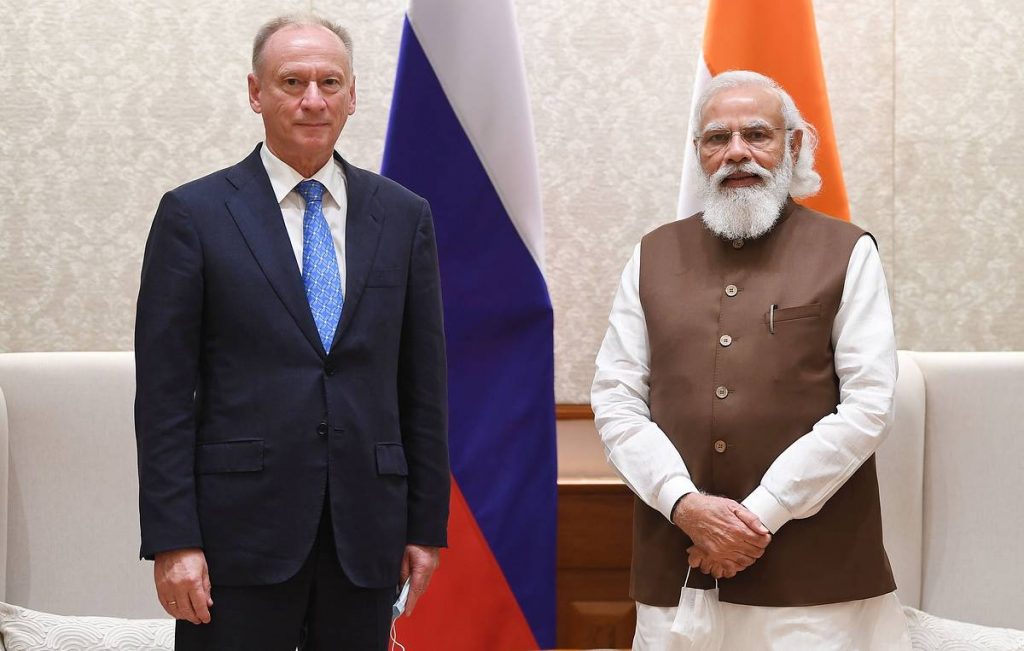
On Wednesday, March 29, Secretary of the Security Council of the Russian Federation Nikolai Patrushev arrived in New Delhi (India). There he took part in the eighteenth meeting of the secretaries of the security councils of the SCO member states and also held talks with Indian Prime Minister Narendra Modi.
Timeline:
- Patrushev represented the Russian Federation at the meeting of the secretaries of the security councils of the SCO (Shanghai Cooperation Organisation) member states. During the meeting, the situation of security and stability in the SCO was discussed. The participants also focused on specific activities to jointly counter transnational organised crime, terrorism and the revival of neo-Nazism. In addition, special attention is paid to the need to uphold universal human values, prevent interference in the internal affairs of sovereign states, and counter the policy of unilateral sanctions and restrictive measures.
- Patrushev held talks with National Security Adviser to the Prime Minister of India, Ajit Doval. As a result of the discussions, ways were outlined for further cooperation between Russia and India in the field of security and in the implementation of a number of joint economic projects.
- Patrushev met with Indian Prime Minister Narendra Modi. According to official statements, issues of Russian-Indian bilateral cooperation of mutual interest were discussed during the meeting.
Outcomes and outlook:
India remains a key partner for Russia. However, Prime Minister Narendra Modi’s policy is to cooperate harmoniously with both the US and Russia without leaning towards this or that association. In essence, Modi is trying to restore India’s role and influence during the days of Jawaharlal Nehru and his attempts to lead the Non-Aligned Movement.
At some stage, this game of India suited Russia. Now, Patrushev (and Putin) seem interested in the certainty of New Delhi’s position. But, most likely, he will not achieve this certainty.
It is striking that it is Patrushev who is entrusted with the most serious foreign policy missions. Foreign Minister Sergei Lavrov is increasingly performing ceremonial functions: he is entrusted with negotiations and secondary trips. Lavrov was also instructed to conduct official negotiations with the US Secretary of State. The first plan and the main negotiations with partners are the lots of Patrushev. Moreover: in conditions where Putin has become practically restricted from travelling abroad, Patrushev will become his understudy at the most important negotiations.
4. Call from US Secretary of State Anthony Blinken to Russian Foreign Minister Sergei Lavrov
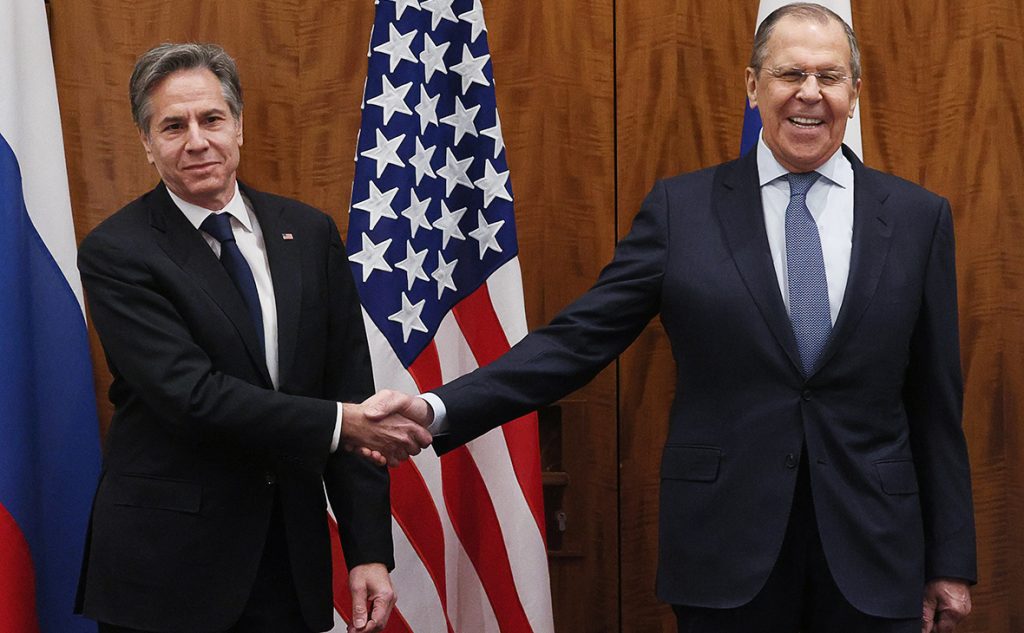
On Sunday, April 2, a telephone conversation occurred between US Secretary of State Anthony Blinken and Russian Foreign Minister Sergei Lavrov. According to official statements, the conversation was initiated by the American party.
Key statements of the parties:
- According to a published report by the Russian Foreign Ministry, the parties discussed the detention of the American journalist Gershkovich on charges of espionage. It is noted that Anthony Blinken’s attention was drawn to the need to respect the decisions of the Russian authorities, taken in accordance with the law and international obligations of the Russian Federation. Furthermore, it was emphasised that it is unacceptable for officials in Washington and the Western media to whip up a stir with the explicit intention of giving this case a political colouring.
- It is also noted that some topical issues of a bilateral nature were also touched upon during the conversation.
- According to a released US State Department report, Anthony Blinken conveyed to his Russian counterpart the serious concerns of the United States over Russia’s unacceptable detention of a US citizen and journalist. The secretary called for his immediate release.
- In addition, it is noted that Lavrov and Blinken “discussed the importance of creating conditions that allow diplomatic missions to do their job.”
Outcomes and outlook:
It is worth noting that the last time Anthony Blinken and Sergey Lavrov had an official telephone conversation was on July 29, 2022 – eight months ago. At the same time, in early March, the parties held informal talks on the sidelines of the G20 Ministerial Meeting in Delhi.
It can be deduced from the highly streamlined official reports from both sides that a broader range of issues was discussed during the telephone conversation. Therefore, it should be assumed that the “certain topical issues of a bilateral nature”, which the Russian side announced, can also include the issues of Ukraine and Europe.
In addition to many topical issues in relations between the two states, it is worth noting many recent events that could become an occasion for official contact between Washington and Moscow. First, we are talking about Xi Jinping’s recent visit to Moscow. Despite statements by some US officials about the virtual absence of significant results of the visit, the statement of the Chairman of the US Joint Chiefs of Staff, General Mark Milley, to the Committee of the House of Representatives on the Armed Services, that “China, Russia and Iran are “moving closer” and will be a constant problem is very revealing. for many years.” Moreover, several statements by Moscow and Beijing following the meeting demonstrate open hostility towards Washington and its satellites in Europe and Asia.
Secondly, last week Putin announced the imminent deployment of tactical nuclear weapons on the territory of Belarus. A few weeks earlier announced the suspension of Russia’s participation in the START. Of course, the escalation of the nuclear threat is a severe reason for additional communication, the results of which may affect the strengthening of global security (even if we assume that the escalation is agreed upon or controlled). Notably, a few days before the telephone conversation between Blinken and Lavrov, the Russian Foreign Ministry announced that “as a goodwill gesture”, Russia would warn the United States about launches of intercontinental missiles and submarine missiles.
Thirdly, Finland finally got the green light to join NATO, as the Turkish parliament approved the ratification of this application. Apparently, the eastward expansion of NATO is also a serious cause for concern on the part of Moscow. This issue could become the subject of a conversation between Blinken and Lavrov. At present, the completion of the expansion process of the North Atlantic Alliance needs more formalities, and this issue may be one of the elements of pressure in the negotiation process between the United States and Russia.
Also, according to Ascolta, during a telephone conversation between Blinken and Lavrov, possible options for organising direct communication between Biden and Putin (previously over the phone) could be discussed. Implementing such plans is much more complicated in connection with the decision of the ICC. At the same time, some sources state that such training is carried out at different levels.
5. An explosion in a cafe in St. Petersburg and the death of Vladlen Tatarsky
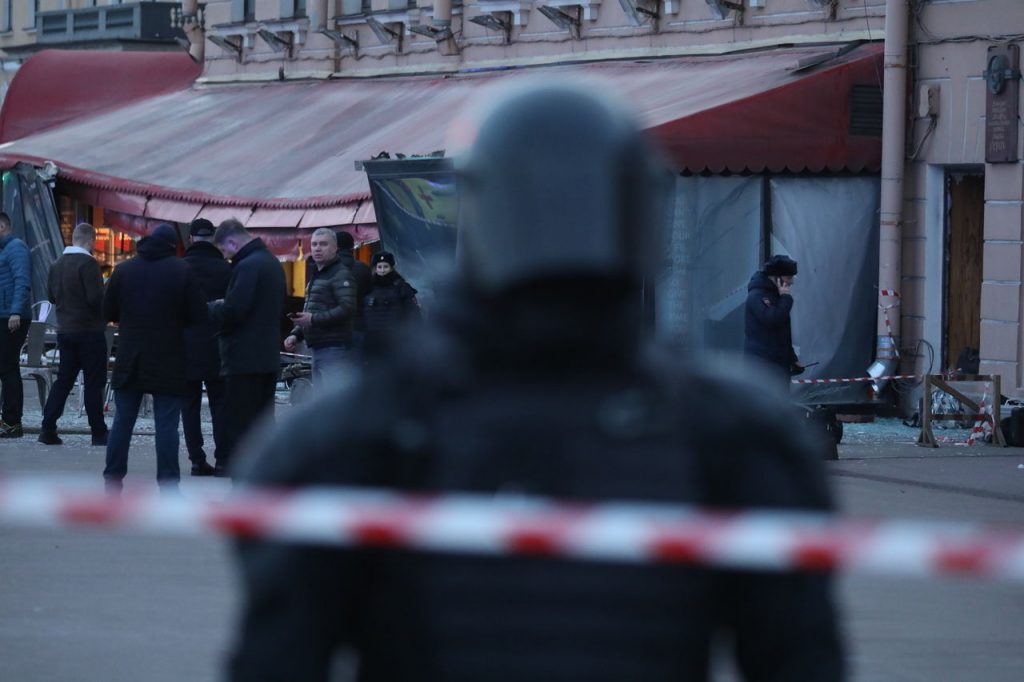
On Sunday, April 2, in St. Petersburg, an explosion sounded in the Patriot cafe, where Russian military blogger Maxim Fomin, better known under the pseudo Vladlen Tatarsky, was meeting with subscribers. As a result of the explosion, Fomin (Tatarsky) himself died, and more than 20 people were injured to varying degrees.
Timeline:
- A few minutes after the explosion, Russian news agencies confirmed the death of Maxim Fomin (Vladlen Tatarsky).
- Russian telegram channels reported that a girl carried the bomb to the meeting with Fomin. She allegedly hid it in a figurine and gave it to a blogger.
- Witnesses stated that the girl who allegedly handed the military commissar Tatarsky a figurine with a bomb was in the room at the time of the explosion.
- The Office of the President stated they were not involved in the explosion in a cafe in St. Petersburg. However, they also hinted at a “showdown between spiders”: “It starts in the Russian Federation … Spiders eat each other in a jar. The question of when domestic terrorism will become an instrument of internal political struggle was a matter of time, like a breakthrough of a ripe abscess. Irreversible Processes and Troubles 2.0. waiting for RF. While we will watch,” wrote Mikhail Podolyak.
- The Russian Foreign Ministry indirectly accused Ukraine of involvement in undermining the Tatar. The statement says that “it is thanks to Russian military officers that the world sees truthful and operational footage and learns information about what is happening” in Ukraine, and, therefore, Tatarsky’s activities “caused hatred from the Kyiv regime”: “He was dangerous for them, but boldly went to the end, fulfilling their duty,” the Russian Foreign Ministry noted.
- The Investigative Committee of the Russian Federation opened a criminal case on the cafe explosion and Fomin’s death.
- A few hours after the explosion, information appeared about the detention by Russian law enforcement agencies of Daria Trepova (born in 1997), who was previously accused of handing over a figurine with explosives to Vladlen Tatarsky. Later, several sources said that Trepova’s relative (mother or sister) had been detained, and Daria herself, together with her husband (a member of the Libertarian Party of Russia), was on the wanted list.
Outcomes and outlook:
It is worth noting that Vladlen Tatarsky was one of the most famous Russian military bloggers. His two Telegram channels have more than a million subscribers in total. Fomin became widely known after the start of the Russian invasion of Ukraine. On September 30, he and other military correspondents were invited to the Kremlin to announce the annexation of part of Ukrainian territories.
He comes from Makiivka, Donetsk region, and was born in 1982. Until 2011, he worked as a miner, like his father and grandfather, then went into business, but things were not going well. In 2011, he committed a robbery attack on one of the banks, as a result of which he was convicted and served his sentence in a colony in Horlivka. In 2014, after the start of the war in Donbas, he left the colony and joined the “militia” of the self-proclaimed “republics”. After that, he positioned himself as a writer, publishing the autobiographical novel “Running” in 2020.
After February 24, 2022, he actively covered the actions of Russian troops in Ukraine, becoming one of the top military correspondents in the Russian Federation. Furthermore, since the fall of 2022, he began to actively criticise the command of the Russian army for failures at the front. Since then, he has traditionally been ranked among the media pool of Prigozhin, the curator of Wagner PMC, who also actively criticised the Russian Defense Ministry.
Notably, the cafe “Patriot”, in which Tatarsky was blown up, also belongs to the curator of PMC “Wagner” Yevgeny Prigozhin. Prigozhin stated this last year: “Yes, this room is registered with Concorde (Prigozhin’s company). Is it true I gave it now under the “Cyberfront”? “True,” he said in one of the comments to the media.
Several Ascolta sources at once insist on the version according to which the death of Vladlen Tatarsky may be part of a controlled escalation to form two conditional camps in Russian society. One of the camps is more aggressive and radical, demanding the continuation of the war to the last with the possibility of a confrontation with NATO. The second one is “peacekeeping”, leaning towards an early cessation of hostilities and a negotiation process.
Both camps will play a vital role in the run-up to the presidential election. A radical base is preparing for Yevgeny Prigozhin, who may soon take the position of Putin’s primary (technical) opponent. At the same time, the Russian president is given the role of a peacemaker, advocating an end to the war.
Such a strategy is allegedly being implemented to demonstrate that Russia without Putin will be even more aggressive and militarised since Putin’s main competitors are such persons as Yevgeny Prigozhin, convicted three times, or Dmitry Medvedev, who demonstrates anarchist ideas. Notably, such technology is very intimidating for both external and internal consumers.
Notably, at 23:00 Moscow time, the curator of Wagner PMC, Yevgeny Prigozhin, published a video in which he announced the “legal capture” of Bakhmut and demonstrated the Russian flag on the building of the city administration. He also inscribed on the flag: “Vladlen Tatarsky has a good memory.”
At the same time, Ascolta suggests to consider this information as a theory since, at present, it does not have additional confirmation of the involvement of certain persons and structures in the events in St. Petersburg.

